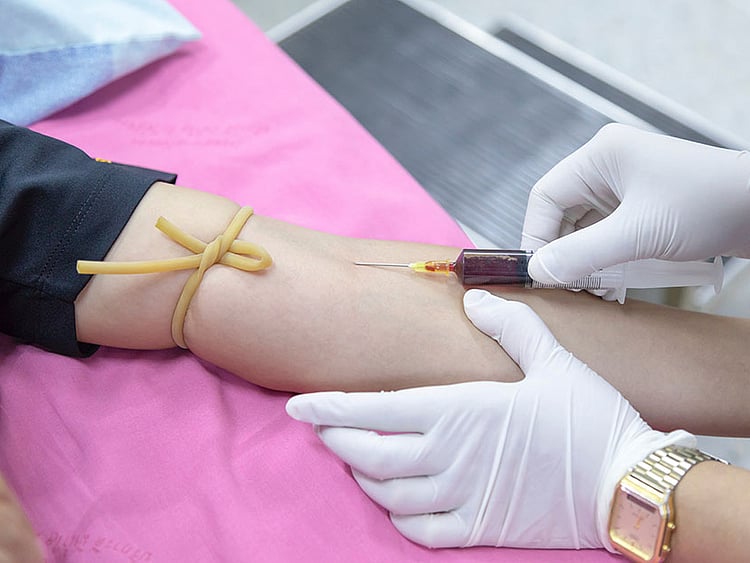New York: Researchers have developed a blood test for pregnant women that can, with nearly 90 per cent accuracy, predict the probability of having a child that will be diagnosed with autism.
According to studies, if a woman has had a child with autism, the risk of having a second child with the developmental disorder rises to about 18.7 per cent; for others the risk is at 1.7 per cent.
In the study, led by Juergen Hahn, Professor at Rensselaer Polytechnic Institute in New York, metabolites of the folate-dependent transmethylation and transsulfuration biochemical pathways of pregnant women were measured to determine whether the risk of having a child with autism could be predicted by her metabolic profile.
Pregnant subjects who had an autistic child were separated into two groups based on the diagnosis of their child.
Then these mothers were compared to a group of mothers who have not had a child with autism before.
The results, published in the journal Research in Autism Spectrum Disorders, showed that while it is not possible to determine during a pregnancy if a child will be diagnosed with autism by age three, they did find that differences in the plasma metabolites are indicative of the relative risk (18.7 per cent vs 1.7 per cent) for having a child with autism.
"These are exciting results as they hint at differences in some metabolic processes that potentially play a role in increasing the risk of having a child with autism," Hahn said.
"However, it would be highly desirable if a prediction based upon physiological measurements could be made to determine which risk group a prospective mother falls into," Hahn noted.
Sign up for the Daily Briefing
Get the latest news and updates straight to your inbox
Network Links
GN StoreDownload our app
© Al Nisr Publishing LLC 2026. All rights reserved.
